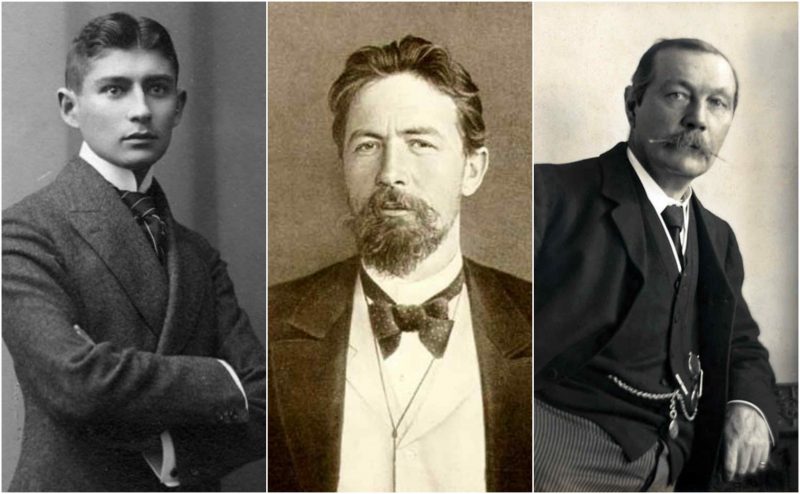How often happens that many of us have “double dreams”? Between the things we do and the things we desire, between what we do and our day dreams.
How often we desire for a few more hours per day, few more years in our lifetime, few pauses for the world to stop spinning and for us to become everything we “always wanted to”. Not everyone gets the time, the energy and the financial support to be or to play more roles in their lives.
Well, read about the “infamous” lives of five famous authors who made it as both authors and…something else. Because of finances or because of desire…they found the time to provide us with ones of the best stories ever written and never forgotten.
Anton Chekhov – Doctor
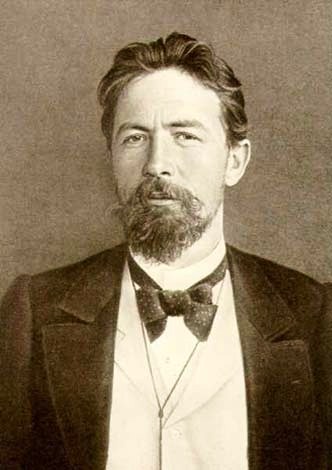
“Medicine is my lawful wife”, he once said, “and literature is my mistress.”
In 1879, Chekhov completed his schooling and gained admission to the medical school at I.M. Sechenov First Moscow State Medical University. In 1884, he qualified as a physician, which he considered his principal profession though he made a little money from it and treated the poor free of charge.
He was the economic mainstay of his family, for his father could obtain only poorly paid employment after he bankrupted.
Considered one of the greatest short-story writers in history, Chekhov also wrote classic plays like “The Seagull,” “Uncle Vanya,” “Three Sisters” and “The Cherry Orchard.” Along with Henrik Ibsen and August Strindberg, Chekhov is often referred to as one of the three seminal figures in the birth of early modernism in the theater. As a bonus, Chekhov’s medical practice enriched his writing by bringing him into contact with all corners of Russian society, from peasants to aristocrats.
Bram Stoker – Theater manager
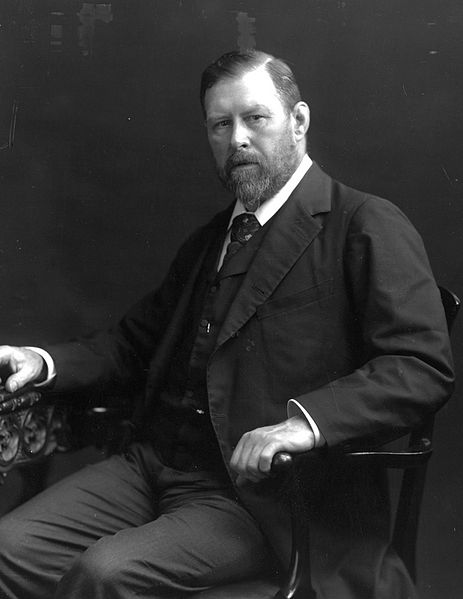
Today, he is best known for his 1897 Gothic novel Dracula, but during his lifetime, he was better known as the personal assistant of actor Henry Irving and as a business manager of the Lyceum Theatre in London, which Irving owned.
Stoker was bedridden with an unknown illness until he started school at the age of seven when he made a complete recovery. Of this time, Stoker wrote, “I was naturally thoughtful, and the leisure of long illness gave an opportunity for many thoughts which were fruitful according to their kind in later years.”
After his recovery, he grew up without further serious illnesses, even excelling as an athlete (he was named University Athlete) at Trinity College, Dublin, which he attended from 1864 to 1870. He graduated with honors as a B.A. in Mathematics.
Newly inspired by his travels and exposure to the arts, in 1875, Stoker published his first horror story, The Primrose Path. He continued to publish writings while managing the successful Lyceum Theatre, including the storyUnder the Sunset (1882) and the novel The Snake’s Pass (1890), earning modest acclaim. In addition to Dracula, Stoker published more than a dozen novels before his death in 1912.
Franz Kafka – Insurance executive
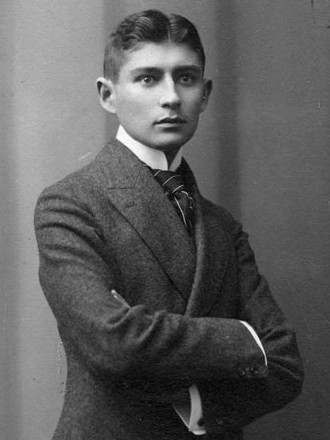
Tragedy shaped the home of the author who explored the human struggle for understanding and security in his novels such as Amerika, The Trial, and The Castle.
Franz’s two younger brothers, Georg and Heinrich, died in infancy by the time Kafka was 6, leaving the boy the only son in a family that included three daughters (all of whom would later die in Nazi death camps or a Polish ghetto).
Admitted to the Deutsche Karl-Ferdinand-University of Prague in 1901, Kafka began studying chemistry but switched to law after two weeks. Although this field did not excite him, it offered a range of career possibilities which pleased his father.
In addition, law studies required a longer course of study, giving Kafka time to take classes in German studies and art history. Kafka’s father had a profound impact on both Kafka’s life and writing. He was a tyrant of sorts, with a wicked temper and little appreciation for his son’s creative side.
After completing his legal education he was employed with an insurance company, forcing him to relegate writing to his spare time. In 1908, he took a job at the Workers’ Accident Insurance Institute for the Kingdom of Bohemia. Over the near-decade Kafka remained with the company, he was known for his tireless work ethic and became his boss’ right-hand man. He also kept writing, publishing one of his best-known short stories, “The Metamorphosis,” in 1915.
Arthur Conan Doyle – Surgeon
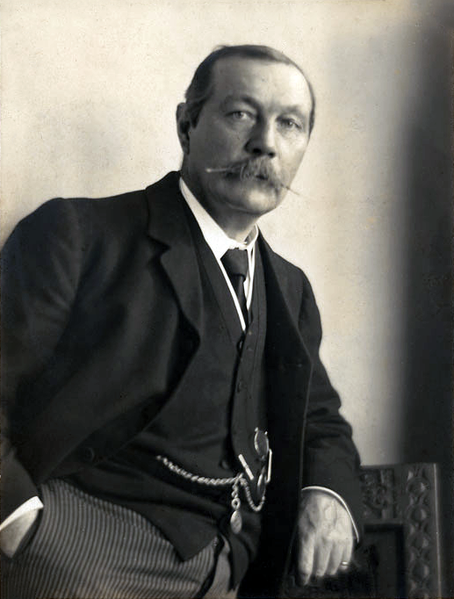
Family tradition would have dictated the pursuit of an artistic career, yet Arthur decided to follow a medical one. This decision was influenced by Dr. Bryan Charles Waller, a young lodger his mother had taken in to make ends meet. Dr. Waller had trained at the University of Edinburgh and that is where Arthur was sent to carry out his medical studies.
The young medical student met a number of future authors who were also attending the university, including James Barrie and Robert Louis Stevenson. However, the man who most impressed and influenced him was without a doubt, one of his teachers, Dr. Joseph Bell. The good doctor was a master at observation, logic, deduction, and diagnosis. All these qualities were later to be found in the persona of the celebrated detective Sherlock Holmes.
Doyle’s first paying job as a doctor took the form of a medical officer’s position aboard the steamship Mayumba, traveling from Liverpool to Africa. After his stint on the Mayumba, Doyle settled in Plymouth, England for a time.
When his funds were nearly tapped out, he relocated to Portsmouth and opened his first practice. He spent the next few years struggling to balance his burgeoning medical career with his efforts to gain recognition as an author. Doyle would later give up medicine altogether, in order to devote all of his attention to his writing and his faith.
Doyle would later give up medicine altogether, in order to devote all of his attention to his writing and his faith.
Herman Melville – Customs inspector
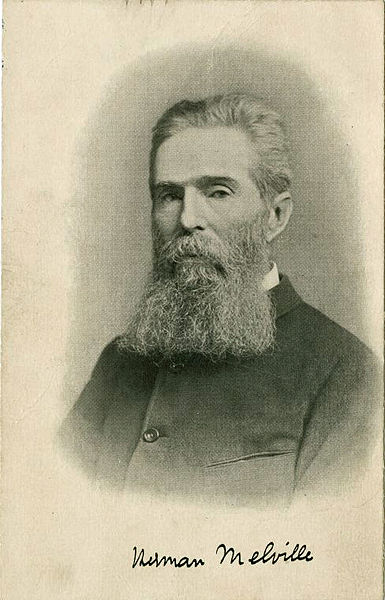
Unable to gain a coveted job, Melville instead followed his brother’s suggestion to work as a crew member on a boat. In 1839, he signed on as a cabin boy for a merchant ship called the St. Lawrence, which traveled from New York City to Liverpool, England, and back.
Popular for a string of colorful novels based on his adventures at sea, Melville turned to more serious, complex fiction starting in the late 1840s. As a result, he promptly lost his readership—and his financial stability. Not only did “Moby Dick” (1851) bomb with readers and critics, but the strain of writing it drove Melville to a nervous breakdown in 1856. “Dollars damn me,” Melville wrote to his friend Nathaniel Hawthorne about his struggles to support his family.
In 1866, he finally secured a steady income (about $4 a day) as a deputy customs inspector at the New York docks. He held that post for the next 22 years while continuing to write in the evenings, on weekends and during vacation. Melville died in 1891, largely forgotten by the literary world, but the much-delayed publication of his last novel “Billy Budd” in 1924 helped revive interest in his work.
